A Four Year Plan: Rohan Dennis and his Grand Tour designs - Q & A
Australian gaining experience with strong early season
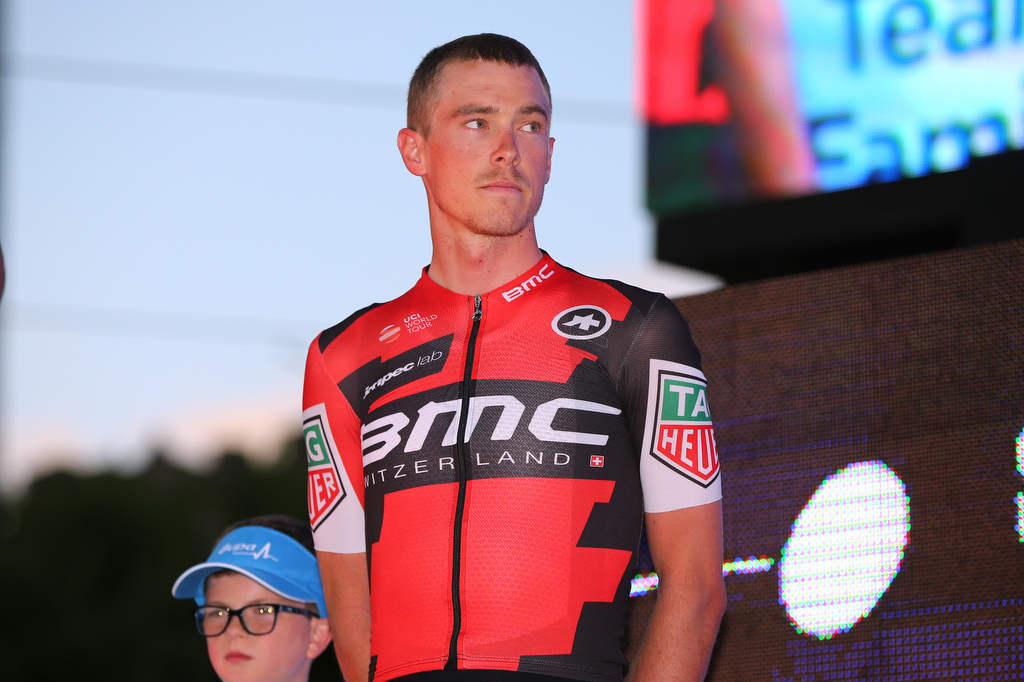
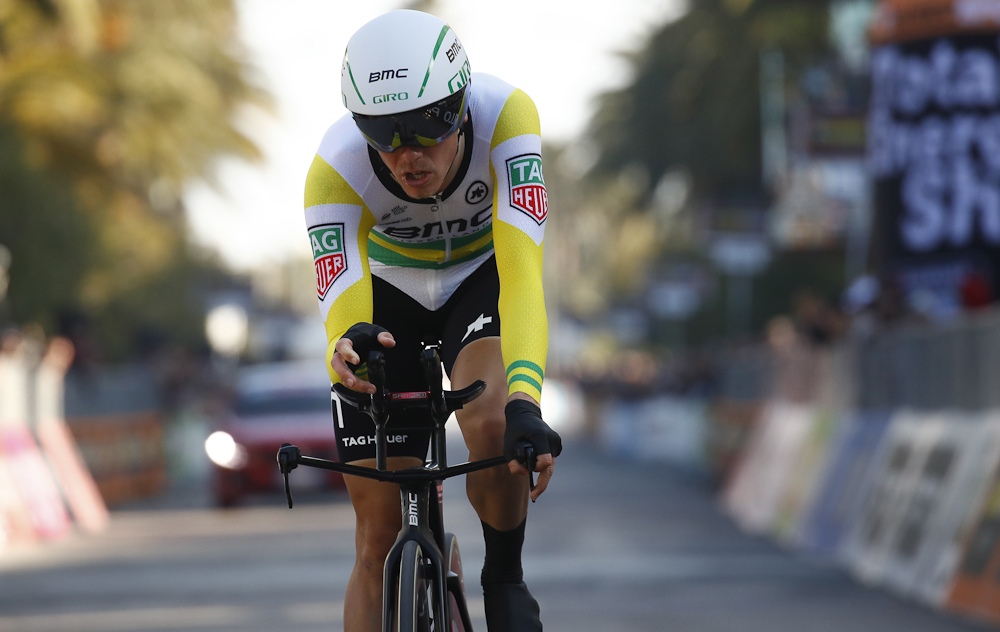
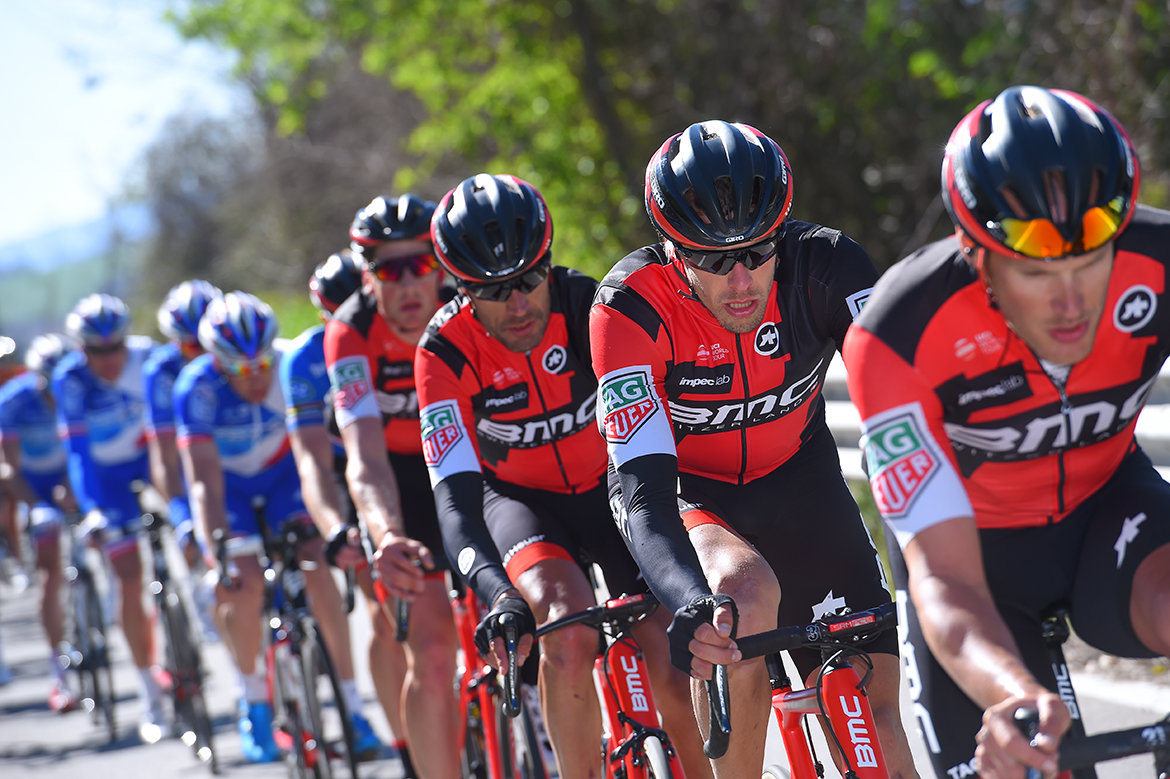
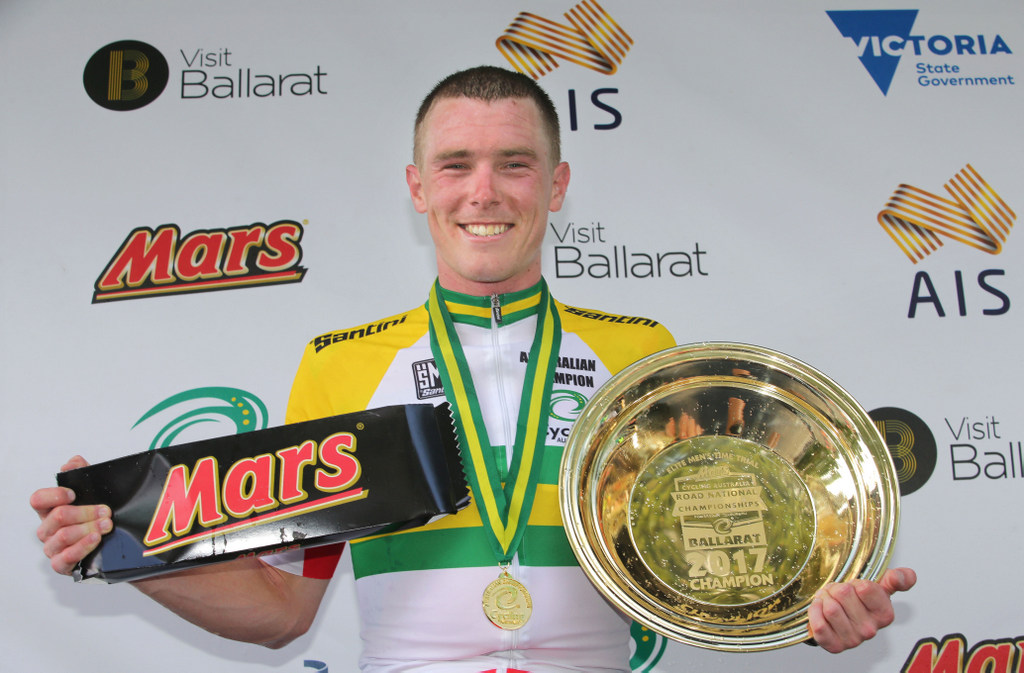
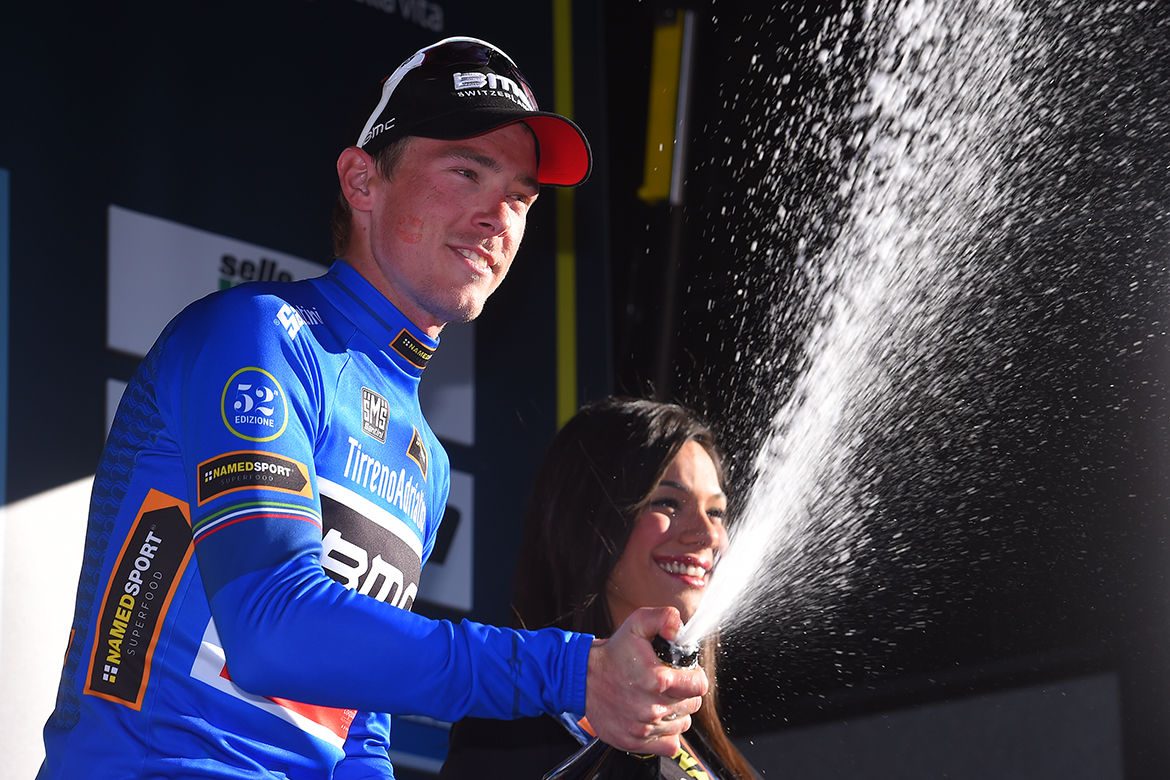
Rohan Dennis (BMC Racing) has given himself four years to find out whether he can become a Grand Tour contender. Here he talks to Cyclingnews about his season so far, Tirreno-Adriatico, Volta a Catalunya the Giro d'Italia and beyond.
Cyclingnews: After what has been a great series of results in the first part of the season, is it fair to say morale's good and you're raring to go?
Rohan Dennis: Morale's good. As for ‘raring to go'…in some ways, yes, in some ways, not so much. I'm feeling a bit cautious at the moment with my form because I'm more looking at May. It'd be great for me and for the team to get a result here in Catalunya - all points count - but the Giro's my goal, and I'm not sure what my limit is, in terms of form. I know I'm going well at the moment, I've got things to do in terms of climbing. But I just don't know if I'd be pushing it too far in one season or six months into my transformation if I tried to always go for GC and always push and push and push - and then pay the price for that in May.
So I'm a little bit tentative at the moment about my goals, putting too much pressure on myself here. If it goes well, I'm not going to say no. But if I think it's getting too much, then I'll take a sideways step to chill and make sure I'm good in May.
CN: Will you be doing any high-altitude training before May?
RD: No. I live in Andorra so I'm not at altitude there - I'm at 1,300, 1,400 metres [above sea level] but that's low. I don't worry about it too much. I find there is some benefit but I'm not sure if that's from being at altitude or just from the climbing. Either way, for me, I don't find the benefit's huge.
CN: So are you surprised that you've been doing so well this year?
Get The Leadout Newsletter
The latest race content, interviews, features, reviews and expert buying guides, direct to your inbox!
RD: I'm glad it's turned for the better this season, but I was surprised with Tirreno for sure. The Tour Down Under was different, I wasn't surprised, I knew I could be good there because it's not got massive mountains. It's more short, sharp efforts. As for the nationals time trial, [which Dennis won this year - Ed], I should be able to win it. I don't want to take away anything from the guys, but I'd put myself as Australia's best at the moment and I'd be disappointed if I couldn't have won it. But climbing-wise and Tirreno, that was a big surprise. I knew my form was good, but not that good.
CN: And there was winning the Tour de Provence as well.
RD: I'd forgotten about that! Actually, I was in the team bus the day before the Tour de Provence start, I'd woken up the first day, and I had a migraine from hell. And I actually thought, maybe I won't start. I was talking to [BMC Racing Team director] Allan Peiper, and he was asking me what I'd thought of the team meeting and stuff and I said, 'I'll be honest with you, on day one I wasn't listening, I was in another world, I was staring at the chair in front of me and thinking maybe I should go home.' I couldn't eat, I felt sick, but it was managed and it ended up all good. So there've a few surprises already since I've come to Europe this year. Normally I'd get dropped and pull out of the first few races, but this is the complete opposite.
CN: And for the Volta, what's the game plan?
RD: A bit like Tirreno. Tejay [van Garderen] is still the leader here in the series of races I'm doing with him, and my role is similar to Tirreno. They [team management] realise that my form is better than we expected, so it might be a bit more level playing field. We'll just have to see how it goes. This week [the strategy] is see how I feel. If I feel like I'm going over the peak of my form, I might call it and target some stages - but specific ones that I feel will help me work towards my GC goals. Basically, I have to try and perform on a hill somewhere and learn to stay with the big guys, put my neck on the line somewhere and hope it doesn't get chopped off.
CN: Is that how you'll tackle the Giro d'Italia as well, with Tejay the leader and you a bit more under the radar?
RD: A little bit like that. Hopefully, we'll have two guys going 100 percent, I think Tejay's form is growing a little bit slower than mine, which is - he's used to that. I'll be there as a last resort to help if it's needed, but if it's not needed then I've got a free role. So it's about learning how to look after myself for the three weeks to, hopefully, one day, become the leader for the whole three weeks. There'll be periods when I'm sure I'll have to put my foot down and ride. But it'll be very specific times, not 'Rohan, we need to be on the front into this flat section, into the wind, you're going to be the first guy to ride.'
CN: But you might be the sixth.
RD: Or I might just be sitting back, waiting for the climbing stages where Tejay needs some pacing, and I'll have to sit in front of him if there's no one else to do it. That's what we discussed in December as well [with team management]. It was, 'Look, Rohan, it's not the Tour [in the Giro] we don't need everyone in front of one guy. It's a different dynamic, but you still need to be there as a last resort.'
CN: Will you draw any conclusions from the Giro and then look at the Vuelta?
RD: Yes. I would love to do the Giro-Vuelta double this year. But I'll have to do a very solid first part of the year. The Tour de France - I think I'll be cooked, sometimes it's too much to ask going full gas for one Grand Tour and then [straight after] another one. Some guys are going to try for the Giro-Tour double like Quintana is, but I think if you really want to perform in both, then you need that time gap. I may be wrong. I've never done it before…
Depending on how my form is, the Vuelta will be about doing what I'm doing in the Giro, or I'll specifically use the Vuelta for the Worlds. I have spoken to the team about it and they've said nothing is ever really decided [about the Vuelta] until they've decided on the Tour and then they think about the second half. I pointed out, though, that it [doing the Vuelta in 2014 - Ed.] worked for Ponferrada, [World Championships, where Dennis got fifth in the individual time trial and BMC won the TTT - Ed.] my form went through the roof and it could do again. The Grand Tour legs helped that for sure.
CN: Looking at the Giro route, is it one you like?
RD: I'm winging it a little bit because it's new ground for me. I've found if I look too far ahead to a race, like say in Tirreno, if I'd said, 'Ooh, the Terminillo [summit finish on stage 4 -Ed. ], that's going to hurt', then I'd have started worrying about it.
But if you take the challenges on the day by day, and manage your effort for what is coming up…. managing when I do go into the red and when I don't: that's where I need to find myself. It'll need a lot of calculating beforehand, and in a way, it's a defensive strategy. But you can't go into a race like the Giro the first time and say, 'I'm going in here and I'm going to win.' That's aiming pretty high [smiles] and ok, if you don't aim high then, then you don't know where you can go. But at the same time, I don't want to say 'I'm going to win this' and then everybody will point and laugh when something goes wrong and say 'look at this idiot'. Which means I'm giving myself time to develop into being a GC rider, rather than putting pressure on and diving head first straight into the deep end.
CN: I've heard talk that you have a four-year plan for the GC bid?
RD: Yep, four years, starting as of Rio last year. In my head, GC is what I want to do. If I can't see the light after four years, then I'll go back to what I know I'm one of the best in the world at doing - [time trialling - Ed.]
CN: A lot of people have tried or are trying to shift from one speciality, like time trialling, into GC racing, and some of them have fallen between two stools. Are you watching and learning from those who have failed as much as those who have succeeded?
RD: I know where you're coming from, and my biggest issue is climbing. So I have to try to lose weight to be able to climb better and more efficiently but not lose power, which is a massive balancing game, and which means my time trialling won't fail either. It's something that guys like Froome and Wiggins have nailed and Geraint Thomas has nailed, too. He's like a stick right now but he can time trial really well. Same goes for [Tom] Dumoulin - he's skinny but can time trial, and for Thibaut Pinot, too. A lot of guys used to think you had to be big and strong like Tony Martin or Fabian Cancellara to win a time trial, and some guys can't get skinny and hold it, and this is a period of finding out if I can do that. If my power/weight ratio goes up, then it's a win.
CN: How much, for you, is time trialling a mental more than a physical question when it comes to success?
RD: I think it's the main thing. That comes also over to climbing as well. I've found that most of the time when I've been dropped, it's negative straight away. In Tirreno, though, I was thinking, 'OK, I've been dropped, but I have 22 seconds over Quintana still and there's a time trial at the end.' So it was all about 'limit your losses and get to the top as quick as possible. OK, you may not catch them, but the race isn't over today.'
CN: So have you been working with a sports psychologist about this?
RD: A little bit, but I think it's more that mental side of, 'OK, you're not here to try and save energy, you're here to try and win the race.' It's a matter of accepting that you can't be the absolute best on every single terrain, every single day. If you lose time on one day, you can gain it the next. But don't just give up if you've just been dropped. If you're motivated, you can always do it. It's about banging it out one day, move on and tomorrow's another day.